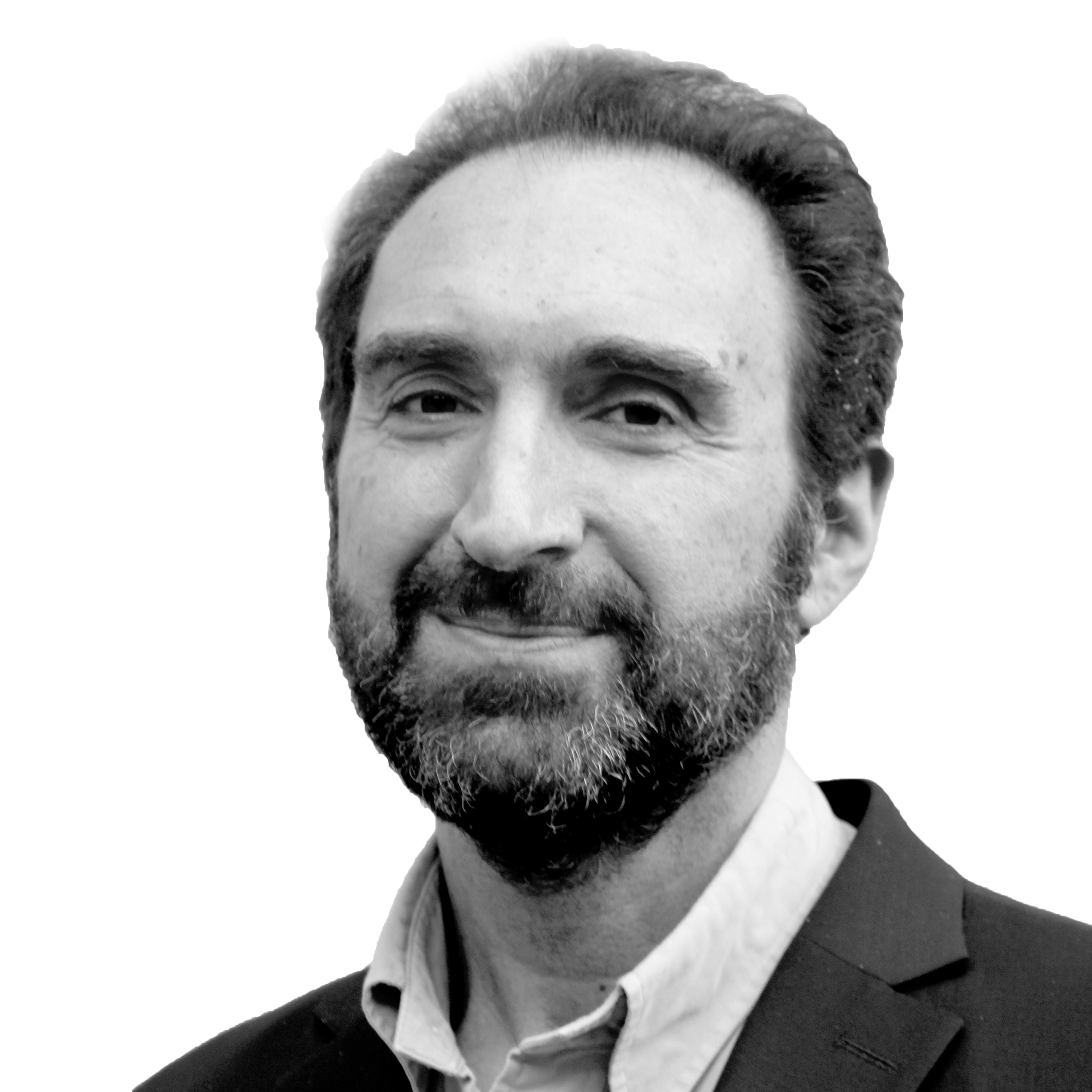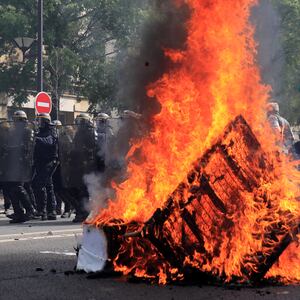PARIS—The crowd that gathered in front of the city’s main courthouse demanded justice for a black man who’d died at the hands of the police. They chanted, “We Can’t Breathe” and brandished signs and scrawled graffiti slogans from the Black Lives Matter movement. The police used tear gas to disperse the largely peaceful protesters, and then small groups of troublemakers broke off to smash windows, bust up ATMs, and burn trash bins.
Politicians and commentators took to the airwaves the next morning to trade accusations about who was at fault for the violence.
It was a scene straight out of the United States right now, except that it happened in Paris, and the 20,000 people who gathered here Tuesday were commemorating not only George Floyd, but France’s own victim of police violence: Adama Traoré, a 24-year-old construction worker, died in a police station after being arrested in 2016.
“My little brother’s last words were ‘I can’t breathe,’” his sister Assa Traoré told the crowd through a megaphone. “They could have taken him to a hospital. They could have tried to save him. They didn’t. They killed my little brother.’’
Crowds have gathered in London, Berlin and Amsterdam these past days to protest Floyd’s death at the hands, or to be more precise, the knee, of a Minneapolis policeman on May 25. But while Tuesday night’s turnout in Paris certainly was amplified by events across the Atlantic, it was also a stark reminder that France has its own issues of racism and police violence.
Watching events unfold in the U.S. brings a certain sense of déja vu to anyone in France. The same dormant grievances. The same spark setting off nationwide protests. The same largely peaceful gatherings of people that turn violent. The same disagreement over whether agitators or police are to blame for the degeneration. The same vandals who take advantage to destroy property and go home with the latest flat screen TV.
It happened in 2018, when protests by the so-called Gilets Jaunes, or Yellow Vests, brought much of France to a standstill and led to historic monuments being trashed in central Paris amid accusations of police violence. It happened in 2005 when French ghettos burned for three weeks after two boys died trying to escape a police ID check. To a lesser degree, it’s happened with labor protests in the years in between, including last year’s against raising the retirement age.
Police violence and racism have been the subject of many French films, including Les Miserables, last year’s candidate for best foreign film at the Oscars.
The French government has been quick to try to dispel any thought that France’s situation is anything like that of the United States. Sibeth Ndiaye, the government’s spokesperson, said Tuesday that events in France and America “aren’t comparable” and insisted “there’s no institutionalized state violence in France.’’
Many French would disagree. Indeed, resentment of the police may well be much more widespread, and among more varied parts of the population, than in the United States.
France doesn’t break out statistics by race, and the police don’t publish detailed statistics about their activities, making comparisons with the U.S. difficult. The lack of transparency is one reason journalist David Dufresne became known nationwide during the Gilets Jaunes protests for using his @davduf Twitter account to publish accusations of police violence. The numerous testimonies he received led to a book.
The percentage of French who expressed confidence in the police dropped 8 points to 66 percent in this year’s annual poll by an institute linked to the Sciences Po university in Paris. That’s way below the level in Britain and Germany.
Chloe Morin, a researcher with the Jean-Jaurès Foundation, said one result of the Gilets Jaunes protests is that dislike of the police, which used to be largely limited to visible minorities, is now shared by wide swaths of white France. “In the U.S., the bad relations are specific to certain places and certain populations,’’ she told The Daily Beast. “In France, between the Gilets Jaunes, the ghettos, and now last year’s pension protests, you have three groups who feel humiliated by the police.’’
The Gilets Jaunes were largely white and rural. They initially blocked roundabouts across France to protest new taxes on gasoline, in their view imposed by an ecologically obsessed government that didn’t understand that outside of Paris people actually have to drive.
The protests spread across the country and turned violent when they were joined by groups unhappy with everything from purchasing power to President Emmanuel Macron’s haughty style. Self-declared antifa and anarchist elements also joined in.
The momentum of the movement only trailed off when Macron rolled back the gas tax and threw lots of money at various other grievances, and the pandemic lockdown seemed to put an definitive end to it. (The public health emergency was the reason police gave on Tuesday for breaking up the demonstration.)
There was also an anti-immigrant element to some Gilets Jaunes, which explains why much of black and Arab France sat out the protests.
France’s so-called banlieues, immigrant-heavy suburbs and exurbs, have been largely calm since the 2005 riots, which led to then President Jacques Chirac declaring a state of emergency for the first time since the Algerian War.
The cynical explanations about why the banlieues haven’t exploded again, even though the job situation and relations with the police have not improved, is that the drug dealers and Islamist ideologues who often hold sway don’t want any trouble. France’s extensive social net has certainly helped as well. It hasn’t been for lack of incidents.
Traoré died in a police station after being tackled when he fled a police identity check. The police had come to arrest his brother, but Adama ran because he apparently didn’t have his papers on him. Four years later, conflicting medical reports still haven’t settled whether he died from the way he was treated by police or because of an underlying heart condition.
“These images of Floyd horrified us, but what we denounce with such vehemence in the U.S. happens here in France, even worse,’’ Adama’s sister Assa said on BFMTV Tuesday. “In the U.S., the police were fired, here they received medals.’’





